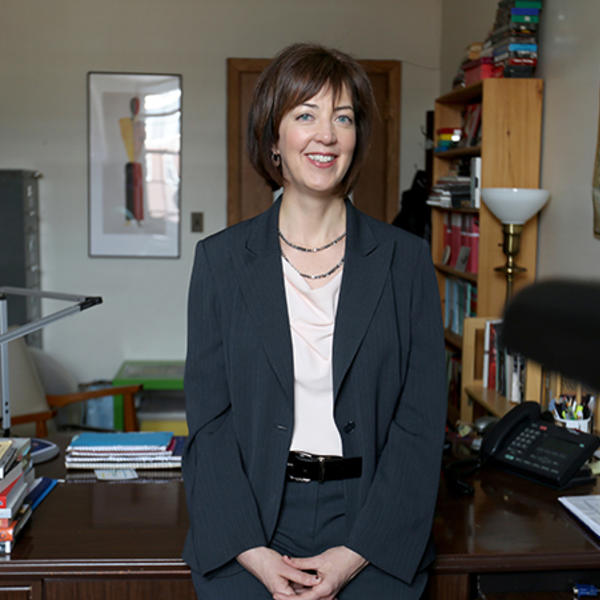In the third installment of a series on truth, Meghna Chakrabarti of NPR's "On Point" turned to Cynthia Hooper, associate professor of history and director of Russian and Eastern European Studies at the College of the Holy Cross, for her insight.
As a historian of Russia specializing in Kremlin media strategy, Hooper talks about how media, the information machine and the powerful manipulate the truth, but also the emerging culture of consent.
"In a lot of ways today, I think we're seeing a devaluing of the importance of truth in power," said Hooper. "And maybe a sense that what matters more is effectiveness."
To make that point, Hooper goes on to quote Fyodor Dostoevsky, who in his final novel "Brothers Karamazov" said that "Most people prefer to live and die happily in ignorance, than to take on the burden of freedom."
So according to Hooper, there is a real dilemma for journalists and educators going forward. "Are we going to give people what they need to know, a way to make them grow, or are we going to give them what they want to hear?"
To listen to the segment, go to WBUR.org.
Are We Living in a Post-Truth World? Holy Cross History Professor Breaks It Down on NPR's 'On Point'

National Public Radio
Read Time
1 Minute


